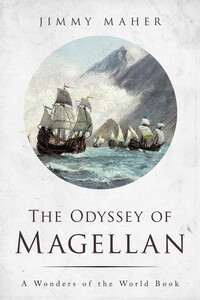What remains to be said about Adventure? It has long and rightfully been canonized as the urtext not just of textual interactive fiction but of a whole swathe of modern mainstream videogames. (For example, trace World of Warcraft‘s lineage back through Ultima Online and Richard Bartle’s original MUD and you arrive at Adventure.) It’s certainly received its share of scholarly attention over the years, from Mary Ann Buckles’s groundbreaking 1985 PhD thesis “Interactive Fiction: The Computer Storygame Adventure” to Dennis Jerz’s superb 2007 article for Digital Humanities Quarterly, “Somewhere Nearby is Colossal Cave.” Still, since this blog has kind of turned into a history of early digital narratives without my entirely realizing it, it’s worthwhile to talk about its background. And having recently played it in its original Crowther-authored form as unearthed by Jerz in the course of researching his aforementioned article, I join Jason Dyer in having a few things to say about the experience. Finally, I’d like to make it as painless as possible for you to experience it in that authentic form as well, if you’re interested.
The outline of Adventure‘s history is probably familiar to many reading this, but in a nutshell it goes like this:
Back in 1975 a programmer and spelunker named Will Crowther had just gotten divorced. Missing his children and feeling somewhat at loose ends generally, he started to write a game in his spare time with the vague idea that he could share it with his two daughters, who now lived with their mother and whom he missed desperately. The game, which he named Adventure, combined his three biggest interests at the time: programming, caving, and playing a new tabletop game called Dungeons and Dragons.
How so? Well, the player would explore a geography loosely based on the Bedquilt branch of Kentucky’s Mammoth Cave, a place Crowther had spent years laboriously exploring and mapping; she would encounter treasures and creatures drawn from D&D in the process; and to win she would have to solve intricate puzzles while always maintaining close attention to detail, just like a programmer. Crowther had just invented the world’s first text adventure, in the process prototyping much that remains with the form to this day.
Those are the broad strokes. But let’s back up for a moment. Just who was Will Crowther? Where Wizards Stay Up Late, Katie Hafner and Matthew Lyon’s history of the development of the ARPANET (predecessor to the modern Internet), paints a pretty good picture of Crowther. His eccentricities have become so associated with the hacker mentality that they almost read like items on a checklist today. To wit:
He was almost disturbingly non-verbal, and rarely displayed any affect at all. He refused to dress up for any reason, even visiting the Joint Chiefs of Staff at the Pentagon in sneakers. And “he was a notoriously finicky eater (anything beyond the culinary level of a plain bologna sandwich was a risk), making him an impossible dinner guest or dining companion.” For all that, though, Crowther was a very unusual computer nerd in at least some ways. For one, he loved outdoor adventures, particularly rock climbing and of course caving. As befits an adventurer, he kept himself in excellent shape, in part by hanging by his fingers for hours on the frame of his office door. And most shockingly of all, he “never touched” soda.
Of course, what allowed Crowther to get away with eccentric behavior was the brilliance of his mind. Crowther’s Wikipedia page says as of this writing that, “He is best known as the co-creator of Colossal Cave Adventure.” That’s true enough, but it’s a bit unfair in a way to Crowther that Adventure and caving so dominate the page, for Crowther’s importance in computer history would be assured even had he never created Adventure.
Crowther was an absolutely key player on the tiny team that, beginning in the late-1960s, laid the foundation of the modern Internet. He wrote the software that ran on the Interface Message Processors (IMPs), the set of computers that shunted data around the nascent ARPANET; in other words, he wrote the firmware for the world’s first routers. He was one hell of a programmer, “regarded by his colleagues as being within the top fraction of 1 percent of programmers in the world,” with a particular genius for writing incredibly compact and efficient code, a valuable skill indeed in those days of absurdly limited memory and processing power. If he had a fault, it was that he was more interested in prototyping, in showing that things could work and how, than in doing the hard, often tedious work of polishing and refining that results in a truly finished, production-ready program.
When we add all of this together, we can begin to see how Crowther could have birthed IF in such a complete form almost on a whim… and then abandoned it on another whim when (presumably) a more interesting problem came along.










